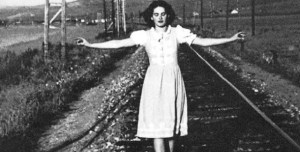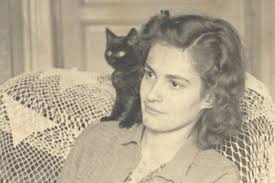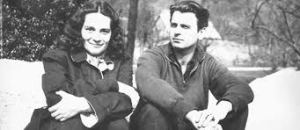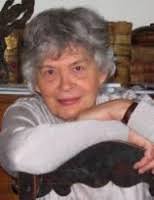What an amazing film to watch, utilizing the young – 27 years old – talents of Peter Lorre (born László Löwenstein) a Hungarian Jew (eventually coming to America). “M” was his second film, so he was just beginning to craft himself into the great actor he would become and you can see it, most especially toward the end in his final scenes. I would like to add, for some people who aren’t aware, that he was posthumously made famous for being a huge part of the song “The Friends of Mr. Cairo,” on the Vangelis soundtrack of the same name. He was an enigma, a unique character actor. A legend.
Continue readingTag Archives: Hungary
In Order to Live – Yeonmi Park Book Review
I had only learned of this young woman a week ago. My boyfriend mentioned her name, we looked her up and found lots of scathing reviews from liberal journalists who don’t know the first thing about psychology or survivors of communist countries. As soon as I heard more about the story, I wanted to read it immediately to see for myself. My step/adopt father came to the U.S. in 1956 from Hungary. Post-WWII, after failing as an ally (luckily), their country was communist until 1989. I grew up learning about communism, Russians and fearing this type of lifestyle. I also, myself, wrote a book about 1956, The Uprisers, in which I did an extensive amount of research. And, I am a trauma specialist in my day job.
Continue readingHungarian-Americans Celebrate 66th Anniversary – Was it worth it? American Now

In memory of my step/adopt father, Antal Végh, who came to this country in 1956, at the age of 19 and died only eight days before the 40th anniversary.
What would my dad say now, if he saw the country he escaped to in 1956, to have freedom, in the wake of communism in Hungary? I wonder what he would think of his daughter, standing in line at Kroger, in New Albany, Ohio, for thirty minutes around 8pm because they only had one cashier. No more “Three’s a Crowd,” customer service rules there (from a long ago commercial). An impromptu and unplanned demonstration, you might say, was going on with those of us in line. We refused to use self-service because most of us were in our 50’s and 60’s and understood what self-service meant. We lived through having the luxury of gas station attendants who washed our windows and changed our oil for free. What started with one lane for “self-serve” at a gas station went to all self-serve and people in a kiosk who couldn’t care less about your car.
I had the unfortunate experience the other night, while at the same Kroger’s dealing with an angry kiosk employee. I had rapped on the window because I kept saying hello and she didn’t answer. I peered through the window around the corner and saw her standing there, out of view. When she got to the window she replied “You didn’t need to tap on the window.” I replied that I had tried calling out and she did not respond. Kroger Fuel will not accept Master Card, so I have to go to the kiosk to pay. I know what happens to pin numbers at the pump, by ne’re-do-wells. So, what would my dad say to my having to stand in line for food? He refused to go to any restaurant, when he was alive, if there was a line. This is because, in Hungary, he remembered food lines and would never approach one ever again.
Continue readingSurviving the Pandemic Strongly and Bravely: A Professional Woman’s Story
For the longest time I have wanted to share publicly, my story of surviving this pandemic as a psychotherapist and a woman. I attempted to a couple of times and then took it down or never posted it. Today, I finished reading Dr. Mark McDonald’s book “United States of Fear: How America Fell Victim to a Mass Delusional Psychosis.” If a child/adult psychiatrist can be bold enough, as a medical doctor, to come forward well, what is stopping me?
Continue readingPreparations to be Together… A Hungarian Film
This is a Hungarian film, with a very very long name: Preparations to be Together for an Unknown Period of Time (2021). It is a film that many women can relate to. The man who isn’t who he says he is. The man who cons us into his disguise. The man who is avoidant and we take on the challenge of falling in love with him and gaining his trust and love. Then he turns into another person. He lies. We try to win him back by being persistent and devout. In the movie, this goes in an interesting direction. A very artistic path. Yes, she does get him back in the end. Only, in real life, this rarely happens.
Continue readingAlaine Polcz – Hungarian Writer and Psychologist
In her book, “A Wartime Memoir: Hungary 1944-1945,”Alaine tells about a life changing year that instead of being her downfall, became her life’s purpose. Sitting ducks with a changing guard, from Russian to German on an on-going, what seemed like a never ending basis, she travels from Transylvania (then hoping to remain with Hungary) to Csákvár, in Hungary and back again. In the end, you can imagine the frustration in knowing, if she had never left, her life would have remained simple an innocent.
 What is beautiful about this book is that she is not talking like a psychologist but instead, goes back in her mind to re-live painfully traumatic experiences at the age of 19, as if she were that age once more. As a psychotherapist myself, I get the sense that she probably never went through her own course of treatment. This is because she continues to repeat over and over “I do not remember…” This is typical of a sexual abuse survivor or someone who was horribly traumatized at a young age and blocks the exact details of the trauma from their mind, for their own “assumed” well-being. Ironic, as she was a psychologist yet even today, people in this profession are closed off to doing their own work. It is important so that they can properly support others without transferring their own pain onto the client or confusing the client’s story with their own. I am not condemning her though because this was more typical of this time period. I grew up with Hungarians (refugees from the revolution), none of whom went into therapy and all of whom went through some of their own harrowing ordeals. Not least of which was fleeing their beloved homeland.
What is beautiful about this book is that she is not talking like a psychologist but instead, goes back in her mind to re-live painfully traumatic experiences at the age of 19, as if she were that age once more. As a psychotherapist myself, I get the sense that she probably never went through her own course of treatment. This is because she continues to repeat over and over “I do not remember…” This is typical of a sexual abuse survivor or someone who was horribly traumatized at a young age and blocks the exact details of the trauma from their mind, for their own “assumed” well-being. Ironic, as she was a psychologist yet even today, people in this profession are closed off to doing their own work. It is important so that they can properly support others without transferring their own pain onto the client or confusing the client’s story with their own. I am not condemning her though because this was more typical of this time period. I grew up with Hungarians (refugees from the revolution), none of whom went into therapy and all of whom went through some of their own harrowing ordeals. Not least of which was fleeing their beloved homeland.
Alaine was born in Kolozsvár, when it was part of the Austro-Hungarian Empire (at this time known as the city of Cluj-Napoca). Now it is Romania and it was in 1944-1945 as well. This was a time of unrest between the Romanians and Hungarians, power struggles on the Romanian part that included violence and discrimination against the Hungarians who lived there. Alaine’s father gave her this male name because of two reasons. One, he did not know French and so unaware that it was a man’s name but Two, his only purpose was finding a name that was not able to be translated into Romanian.
At the onset of 1944, Alaine, at 19, was married to her childhood sweetheart János. Within a few months into their honeymoon period, he gives her gonorrhea. Amazingly, but not surprisingly, it is at this point when he detaches from her and begins to be an emotionally abusive husband. She has the luck of being a strong woman, though terribly naïve. His mother, Mami, happens to work for the Esterházy family, who are of noble origins. It is here that they will go to live and because of him that she follows the family as they escape into Hungary to live and work at another estate, which will be the beginning of the end of Alaine’s life as she knows it. In Csákvar, what seems to bring some peace and safety for a short time, ends up being the front lines, which means constant harassment or torture from either the Germans or the Russians. For women, as with all wars, she and other villagers will be gang raped on what appears to be a daily basis, and at this time, she is under the impression that her husband was executed. The most impressive lines that she writes of her first account of abuse goes like this:
He put the photograph [of she and her husband] on the nightstand and laid me down on the bed. I was afraid he would not give me the picture. When he was done, he took the picture into his hand and showed it to me again…
When she writes, she is not writing like a writer in this book. She states facts, over and over. There are no pictures drawn and yet there is a story being told. Fuzzy memories are re-told and sometimes they are not even in order, so you have to re-read to catch yourself. It is as if you are sitting with her and she is telling you a story. When I got to the line “When he was done,” it came at me so quickly; I had to read it a few times to let it register. “Oh, okay,” I thought, this is how she is protecting herself and the audience. Even though she is not talking like a psychologist, she is consciously protecting throughout the book.
At some point, days, maybe a month or so later, she is escorted to a cellar, with 79 other Hungarians, who are doing their best to survive. They will go through days or months (you are never sure of the timeline but the book is only one year), of not bathing, very little food and at one point no water, ritual defecating and urinating (they can only go outside to do this during the 10 minutes of ceasefire which occurs daily at the same time), as well as lice and natural body odors. She is only with Mami and her dachshund “Filike,” who she holds at her breast, under a coat which no one notices until the end of her time there.
Alaine does spend a lot of time talking about blood and guts and waste, more than any other writer I have seen when it comes to war zones. One does wonder how people use the toilet during these times. When she mentions herself running away from a gang rape sequence, she talks about running through the snow with a slip on and blood being caked on her body and in her panties. She mentions being in the cellar when she pulls her shirt away from her body and a woman notices the skin of a sore coming with it. She is telling us about how you just keep going, no matter what, becoming oblivious to your own vanity.
The war is at the end, in 1945, when this part of her story comes to a close. She returns to Budapest, still without her husband, to be reunited with family; who will then return to Kolozsvár. She is saved from being labeled a whore, as most women will be in this time period, because her family are good people and she finally denies what happened. By this time the gonorrhea and the life conditions she has just endured have taken its toll on her body. She is hospitalized for some time before she will recover and get some of her life back. The irony is that she will never be able to bear a child and this was the fault of her own husband. The sardonic twist is the realization that all those Russian soldiers had went home to their wives passing on her venereal disease to them.
 She and János will part ways and soon she will meet her second husband Miklós Mészöly, who went on to become a famous Hungarian writer. Alaine will go on to become the founder of the first children’s hospice program and win two different awards. She receives the Tibor Déry Award in 1992 (for this book, which was written in 1991) and The Middle Cross of the Order of Merit of the Republic of Hungary in 2001. Alaine’s husband dies in 2001 and she will pass six years later.
She and János will part ways and soon she will meet her second husband Miklós Mészöly, who went on to become a famous Hungarian writer. Alaine will go on to become the founder of the first children’s hospice program and win two different awards. She receives the Tibor Déry Award in 1992 (for this book, which was written in 1991) and The Middle Cross of the Order of Merit of the Republic of Hungary in 2001. Alaine’s husband dies in 2001 and she will pass six years later.

Post-Script: What is horribly frustrating about the book is the writing and translation. Albert Tezla is the translator and having read a great number of translated books from several different countries, this is pathetic. You would almost think he didn’t speak English because the sentences come across as broken and unedited. I believe he is translating word for word, rather than trying to put it together in some organized fashion. It is also possible that Alaine was never edited since Albert was not either. I think this is embarrassing to both the writer and the country itself. While I am not a prolific writer myself and certainly need to be edited, I am self-published and have no professional acclaim to add to my repertoire. I was disappointed to say the least. However, this story, edited or not, annoying with the redundancy or not, needed to be told. What I have noticed when I find anything about women in history, this is so often the case. It is sad because I can’t recall any time when I have seen the same about men.
Politically Correct Debate for Modern Thinkers
This is quite a fascinating debate series founded by Hungarian born Paul Munk in 2008 out of Toronto, Canada. Interestingly, I learned about this through a client recently. I find that I get many good resources from the people I serve almost as if it were providence. They did make me aware of who won the debate before I saw it, though it wasn’t that hard to figure out as it was quite obvious which side were more gifted in speech and somatic comfort. What is troubling, as always, are Americans abroad. They are just incapable of realizing it isn’t all about them.
A Guide to Watching Foreign Films
Of course it doesn’t hurt to grow up in a European-American family. Where the world that revolves around you speaks another language, has different values, talks about the old country and you begin to look at America as a second home. Watching foreign films for me has always felt as if I were welcomed; as one of theirs who got away. That I was getting a sneak peek into a home that existed but that I had never lived in; yet it felt like it belonged to me. There was a sense of familiarity about it. Déjà vu.
Foreign film observation began at home, not with my family but with Kukla, Fran and Ollie. This was a children’s program that featured the puppets Kukla and Ollie and their friend Fran who would host a film from around the world each week. There is a website to learn more about this but unfortunately very difficult to get the actual films. Hello Netflix?!? This would certainly be a great program for you to buy. Since Kukla, Fran and Ollie was an American program, all the characters were dubbed with British English from what I recall. I didn’t realize it was dubbing as a child, I just though everyone spoke English with a cute accent. There may have been a couple of programs with subtitles but I can’t recall. I do remember circus bears on the loose, a Cinderella story with a bird that would say “Koo-koo-ri-koo, Who is the one for you?” and other wonderful adventures that kids would get themselves into.
